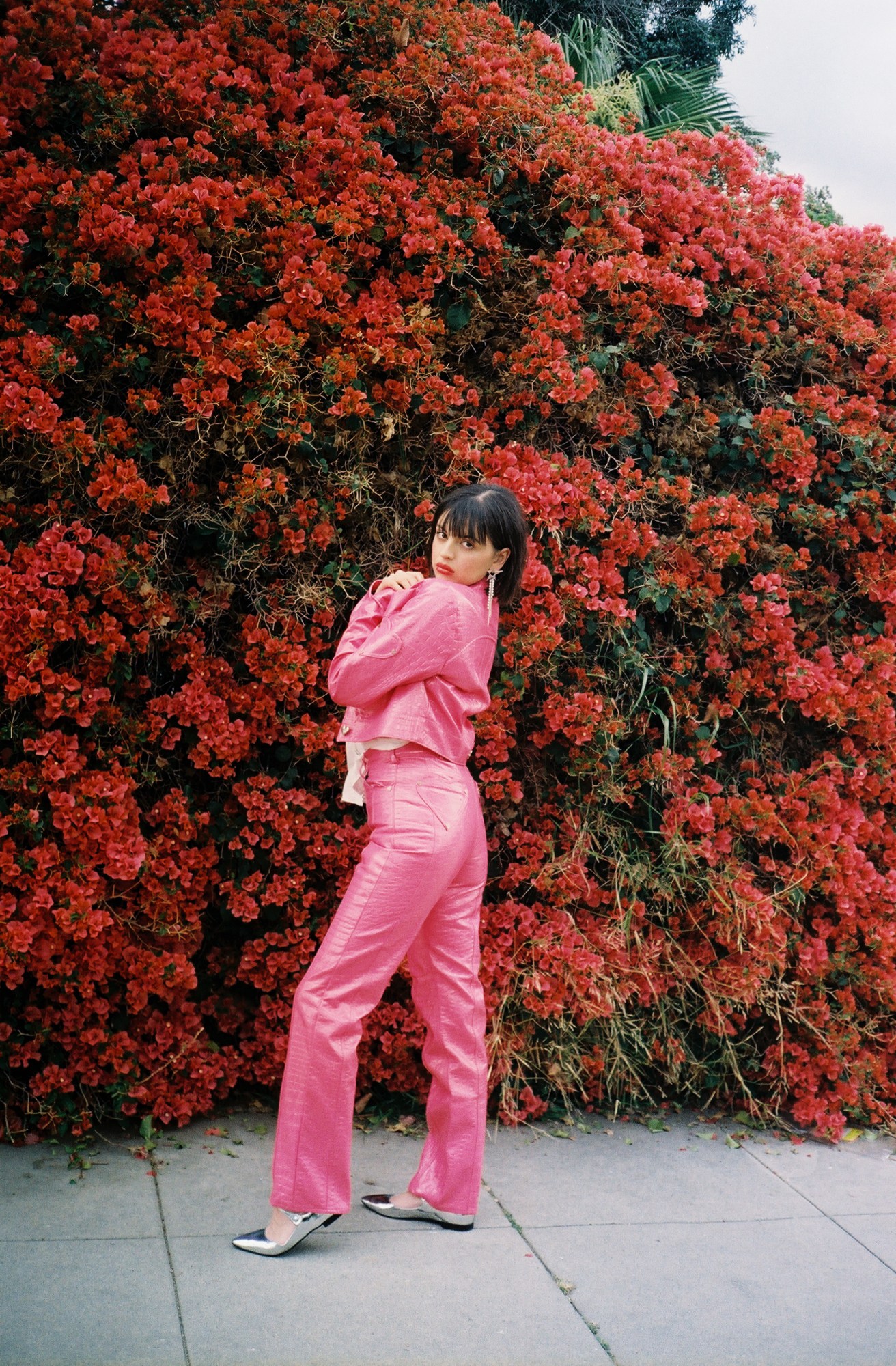“You’re like really pretty,” Rebecca Black’s doormat tells me, as I wait for one of 2011’s most Googled names to let me in. On entry, a black and squirrelly little dog named Marlowe is the first to greet me, or rather reject me; making her caution known with ceaseless yelps. “Sorry, she’s not used to so many strangers in the house,” is the first thing Rebecca says to me, surrounded by two make-up artists, a photographer, her manager and publicist.
The Silver Lake home she shares with a roommate has some LA staples — a Himalayan salt lamp, a Chrissy Tiegen cookbook — but it’s clear the space has been lifted from the owners’ imagination, rather than from Pinterest. There are as many board games as there are records. Catan (the true boardgame of boardgamers) lies next to a gorgeous wooden record player, which lies in front of a gorgeous wooden piano. A dozen or so bottles of vodka sit on a bar cart. Two vintage copies of Playboy Magazine — one closed, the other open on a spread of perfectly spherical tits — take up space on the coffee table. Rebecca is twenty-two.
Nine years ago, a thirteen-year-old girl who loved musical theatre and pop music asked a classmate who’d released a quasi-professional music video how she could make one of her own. She discovered ARK Music Factory, the now defunct musical production company marketed towards kids. Rebecca’s mother, who was single-parenting at the time, paid the company a fee equivalent to a luxury holiday in Mauritius — money she didn’t have.
To tell the story of what happened next would be as pointless as retelling the story of Adam and Eve.
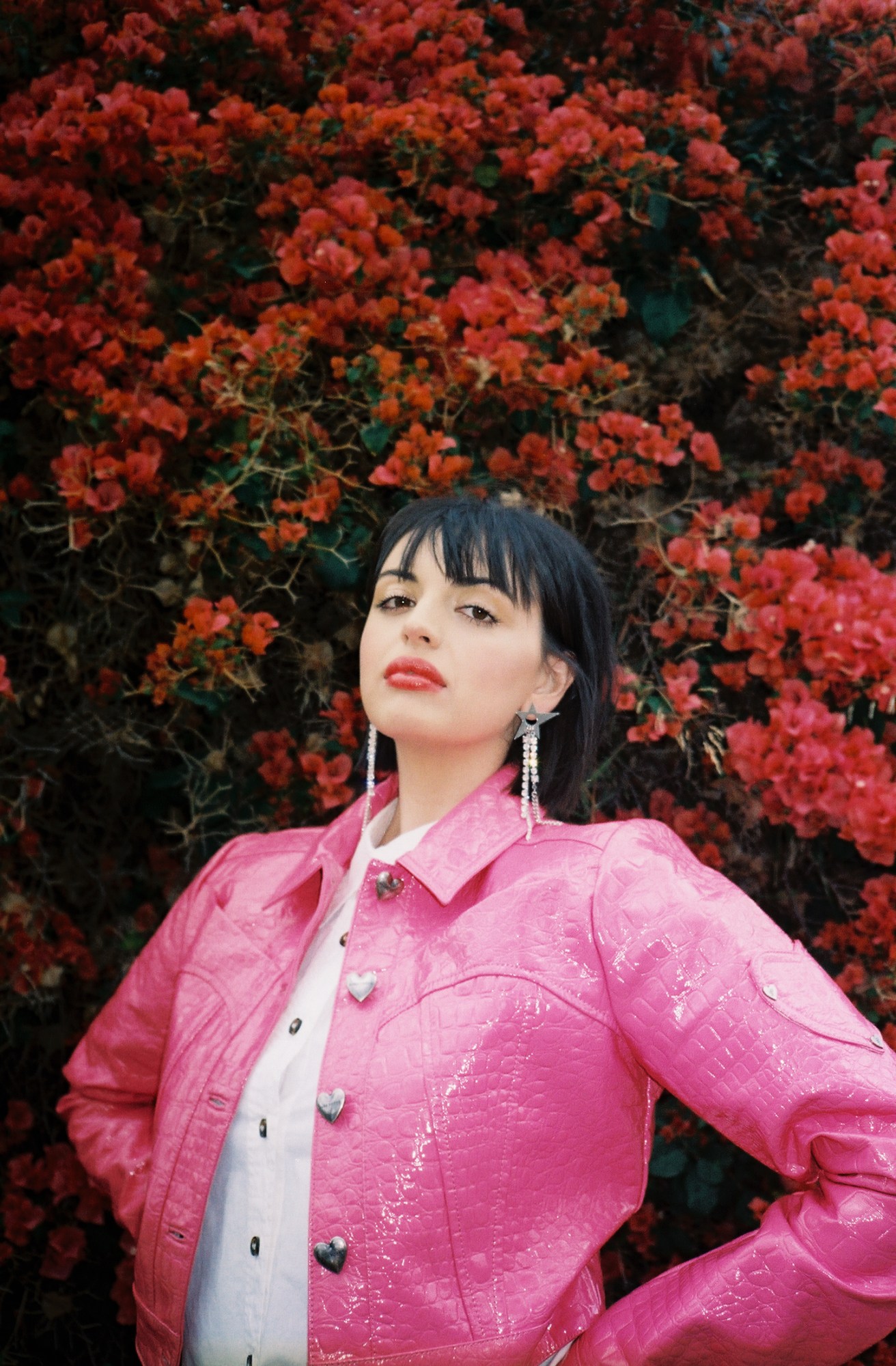
Rebecca Black’s “Friday” is so ingrained in our post-internet world, we could call it the “Hey Jude” of our time and wouldn’t be exaggerating. It remains one of YouTube’s most watched (and disliked) videos. Drag queens still lip-sync to it. Offices still play it too, to signal the end of each working week. “Friday” became a blueprint for our world as it exists today — where virality, social media influence and gladdening banality have become the recipe for musical success. “Gonna take my horse down to the old town road/Friday, Friday, gotta get down on Friday.”
We’ve crystallised this image of Rebecca in our minds. Smiling, stiff-armed, fleshed out with the puppy fat of a thirteen-year-old. Autotune, nasal voice. It’s why, every other year or so, websites will gain traffic with ‘You’ll Never Guess What Rebecca Looks Like Now!’ clickbait. But now, Rebecca is finally reemerging on her own terms.
Last month, she posted an Instagram of herself — long-legged and sylph-like — in what soon became her most talked about move since reclaiming one of the days of the week. “Nine years ago today a music video for a song called “Friday” was uploaded to the internet,” she began. She went into detail about the unique trauma she experienced as a teenage girl who received daily death threats, about the producers who refused to work with her as she grew older, about the depression and self-disgust she’s still prone to. “I’d never even said the word ‘depression’ before,” she says “nor really got to talk about what that looks like rather than just saying ‘the whole world hated me’. Nobody can relate to that.”
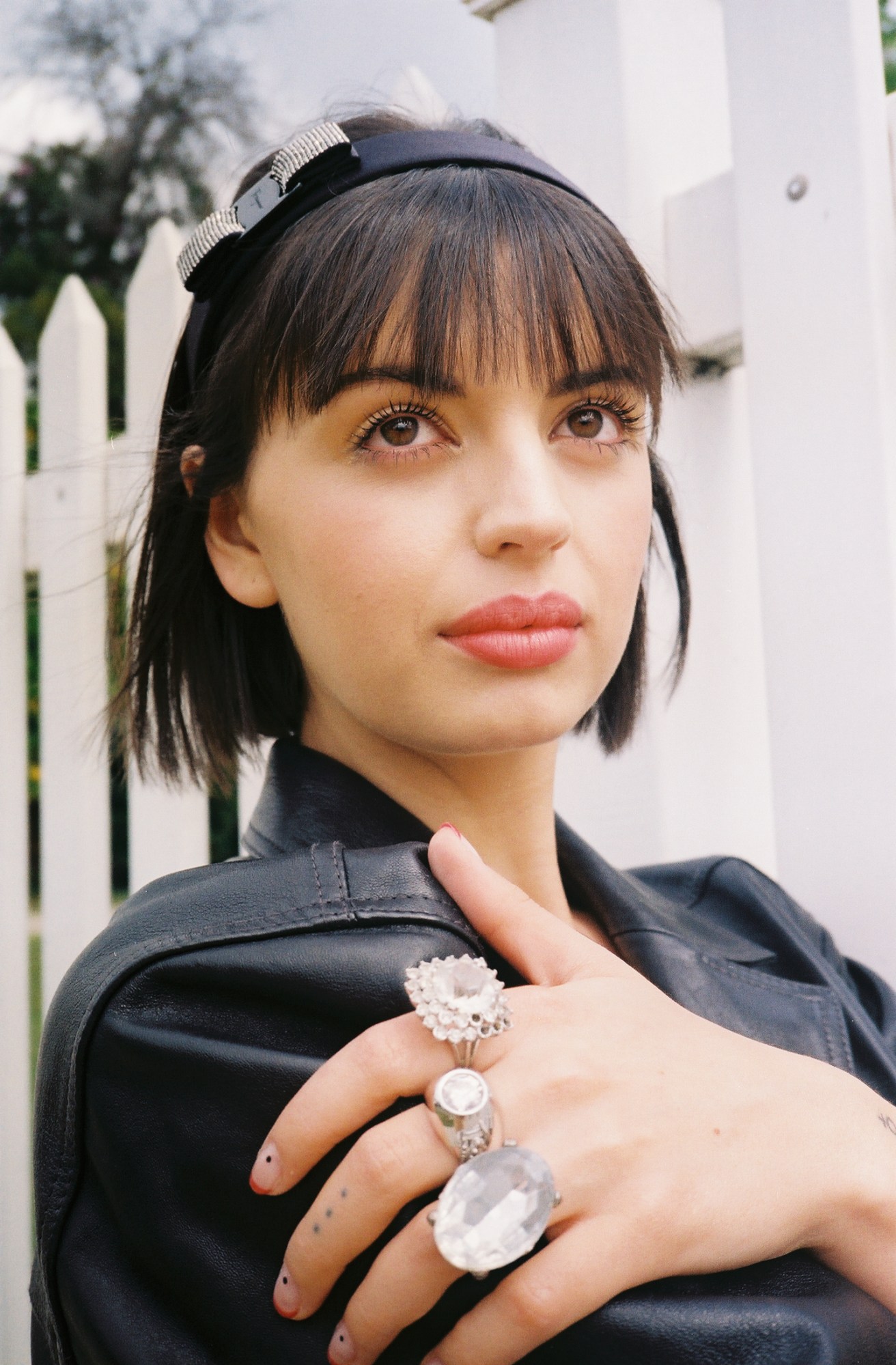
No one can relate to the specifics of Rebecca’s trauma, but today she wonders whether the backlash she received from “Friday” was really just an expansion of what most teenage girls go through. “I think about before “Friday” ever existed and being in middle school, I was feeling pretty much the same things. I was dealing with kids who were brutal to be around, or who decided I wasn’t a part of who they were, and that I deserved to be pointed out.” That Instagram post, she says, is one of the most spontaneous things she’s ever done. Her manager confirms she wasn’t given the heads up before Rebecca posted it. “That post was also for the people who deal with these same feelings but through their own circumstances. I want them to think ’if this girl can get from there to here then that gives me a little bit of inspiration to do it myself’.”
That doesn’t mean that Rebecca intends to sell herself as a redemption story. “We hear so many people talk about how ‘I was like this and now I’m fine’ and I’ve certainly grown a lot, but I don’t think it’s something anyone can really get through. Once you acknowledge that, it becomes a lot easier to move forward.” She says all this with a clarity which can only really be achieved with years of therapy.
Rebecca’s life so far has been about searching for safety. Several months after “Friday” was released, she made the decision with her parents to withdraw from private school and enrol in homeschooling. From her bedroom, she found safety in the enclaves of Tumblr, which helped develop her sense of self — a process which was put on pause at the tender age of 13. At 18, she made the arduous and intentional decision to move out of her parents’ home, and live on her own in LA. “Immediately I was like, ‘holy shit, I have no idea who I am, I have no idea what I like, I have no idea how to make a decision for myself’. I didn’t trust myself enough to make my own decisions because of the amount of people who told me that I didn’t know what I was doing,” she says, touching up her freshly-cut bangs. “It’s a process I’m still really working on. Sometimes it’s as simple as knowing what to do with your hair. Getting the bangs that I have now felt so much like my decision. Even though some people were going ‘no, I don’t know,’ I said, well… it’s mine, it’s my decision.”
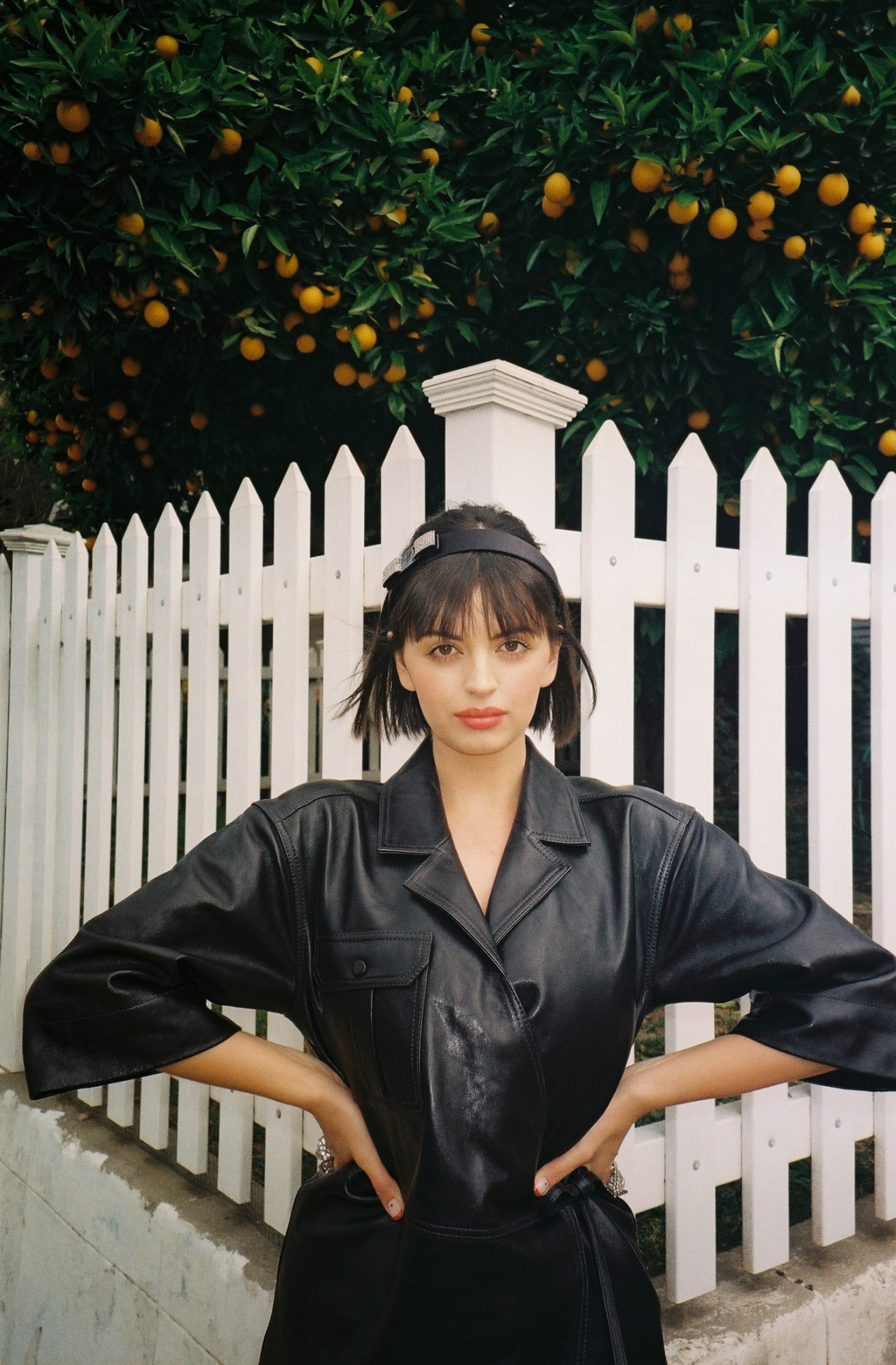
While finding her feet, the first people to comfort Rebecca were, of course, the gays. Now, there’s no term that means more to Rebecca than ‘gay icon’, and the community are increasingly heralding her as such. “I think that’s something a lot of people have realised about the LGBTQ community, that they’re always two steps ahead of everybody else in acceptance, open-mindedness, in fashion, beauty and trends,” she says. “It goes back to that specific-ness of my experience: I felt like an outcast, which many people have their own experience of.”
Are you a member of the LGBTQ community yourself? I ask vaguely, and receive a vague reply. “I’m definitely part of a generation that’s extremely fluid, and everybody’s had their own journey with it, and some days you might feel more one way than the other.” Have you only dated men? I try. “Now you’re getting specific!” she says, calling me out on my game. “No, I haven’t and I guess that’s all I’m comfortable with saying about that now, because I’m still figuring it out.” We leave it at that.
Today, Rebecca is as comfortable being a spokesperson as she is a singer. She’s constantly writing, usually “women empowerment songs” — the kind that come from moments of clarity, like thinking of a killer comeback long after the argument’s ended. You’ll hear that on her new single “Closer”. On another, “Self Sabotage”, Rebecca sings about the frustration when that moment of clarity doesn’t come. “It’s about the cycle of unconsciously messing up the best things that have ever happened to me, because I somehow feel comfortable in situations that aren’t good. I feel more familiar with bad experiences, and undermining my own success.”
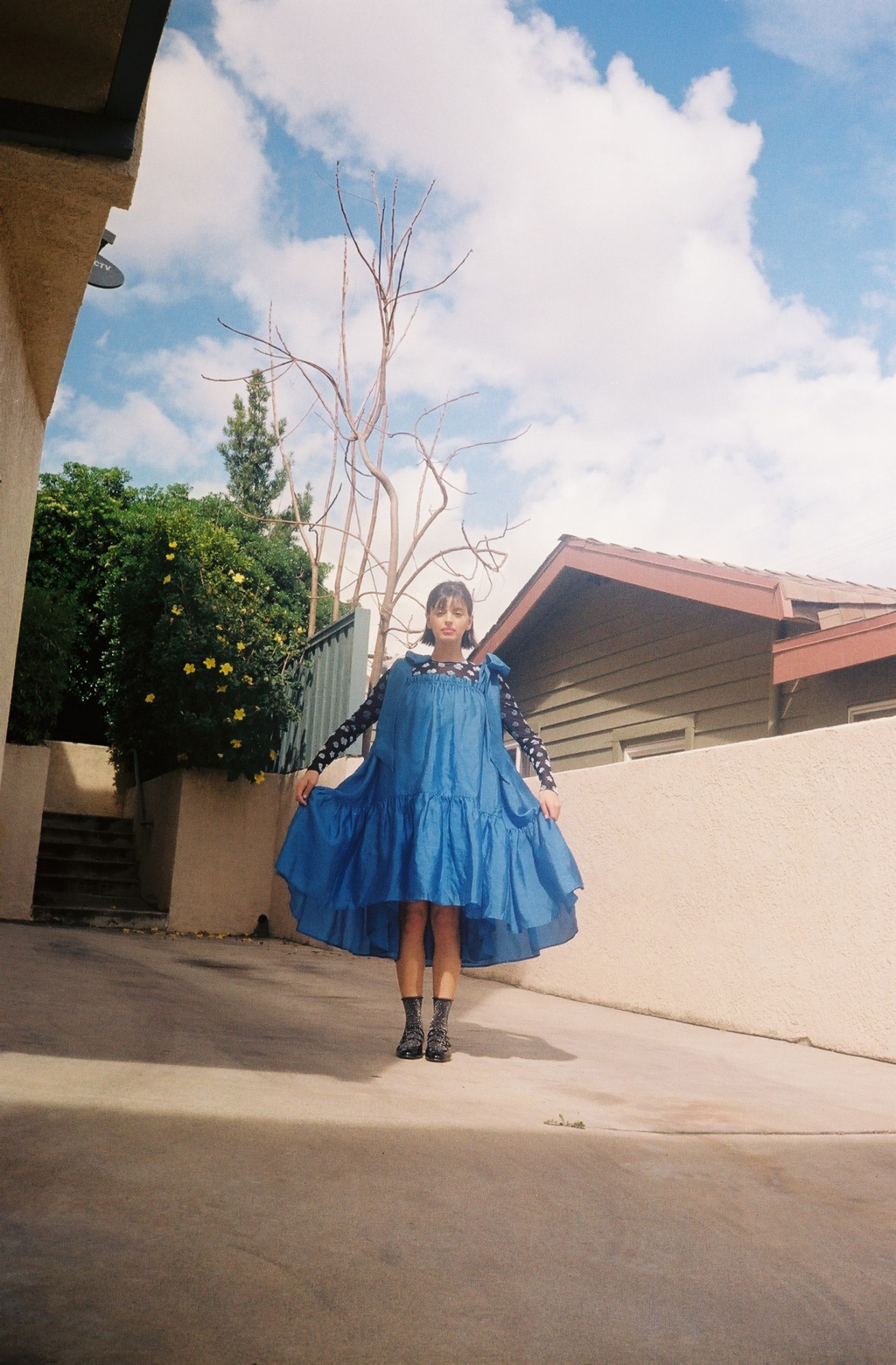
Yes, she’s internalised many of the hate messages she received when she was thirteen. Of course they creep up and turn themselves to doubt. Absolutely, they nag at her when she tries to write. But Rebecca practices forgiveness. “We’re so fragile when we’re young and there are things people will say just off the top of their head without understanding that when you say that stuff to a little girl or a boy or person, it sticks with them forever.” But most of her insecurities, she says, came independently of the internet. “For the majority of my life I’ve had a pretty normal case of body dysmorphia. I remember someone saying that if you have big arms then that means you’re overweight. And I, for probably six or seven years after that, and still now, look at myself every time I wear a tank top and think ‘shit’.”
Rebecca’s close-knit relationship with her fans, who experience some of the same insecurities, have helped her realise that these issues aren’t symptomatic of “Friday”-specific trauma. They just come with the territory of being a woman on Planet Earth.
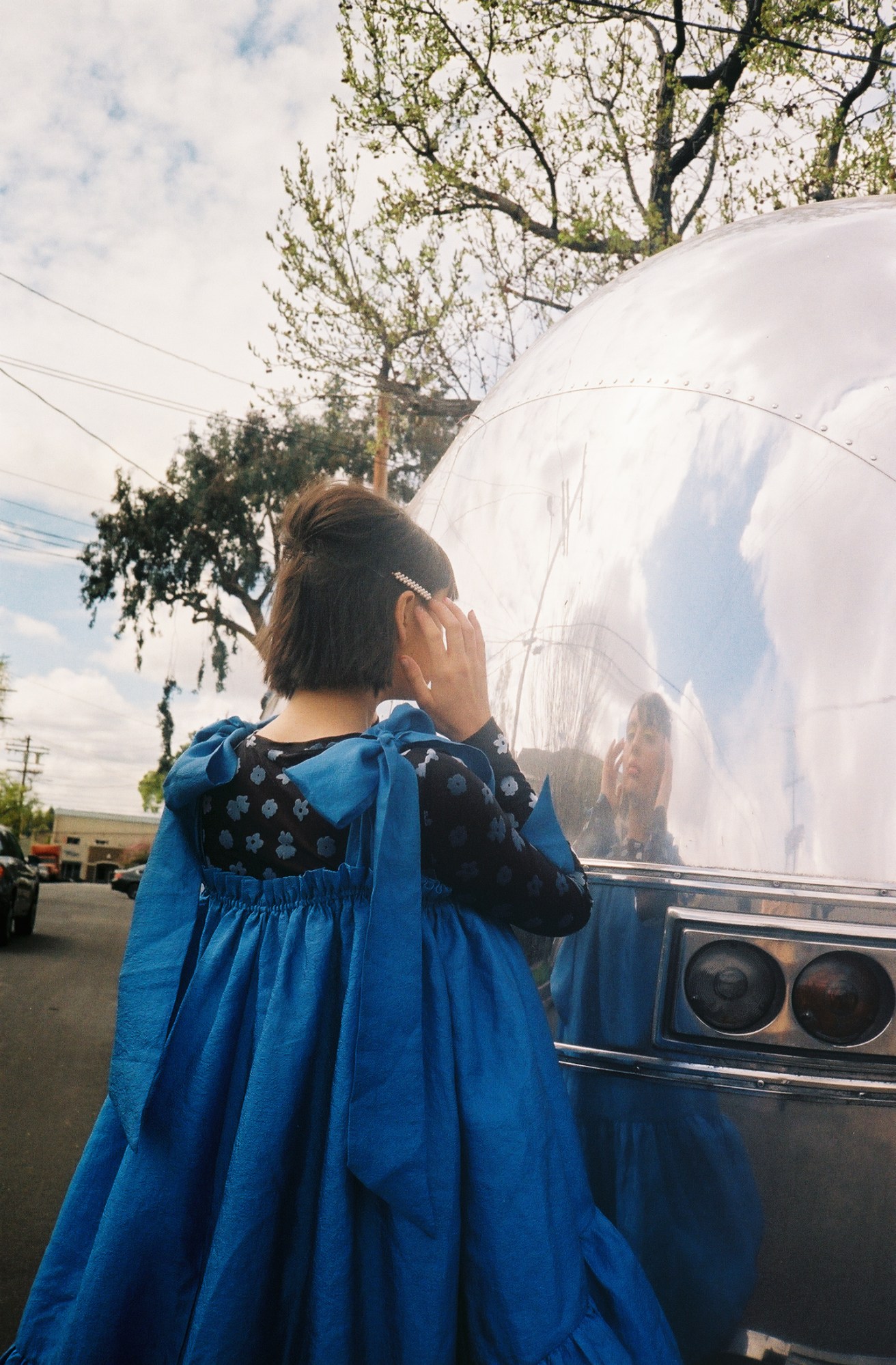
Some of her biggest fans support her music with monthly tips on Patreon. In return, Rebecca will have twenty-minute Skype calls with them at least once a month. “I know their names, their dog’s name, what school they go to,” she says. Through them, she’s able to further develop her sense of self by becoming everything she needed but didn’t have when she was younger.
Next year will mark the tenth anniversary of “Friday”, and while Rebecca’s perspective on it will keep mutating for the rest of her life, for now, she knows “how to celebrate it for the sweet little song that it is”. When she performed it at a university in Connecticut last year, while on her first ever tour, she experienced screaming joy like she’d never seen before. She has some very loose plans to recreate the song sometime in the near future, but it’ll be of her own accord.
My time with Rebecca comes to an end. Marlowe begins to settle. “Don’t you know bangs are back?” Rebecca tells the stylist.
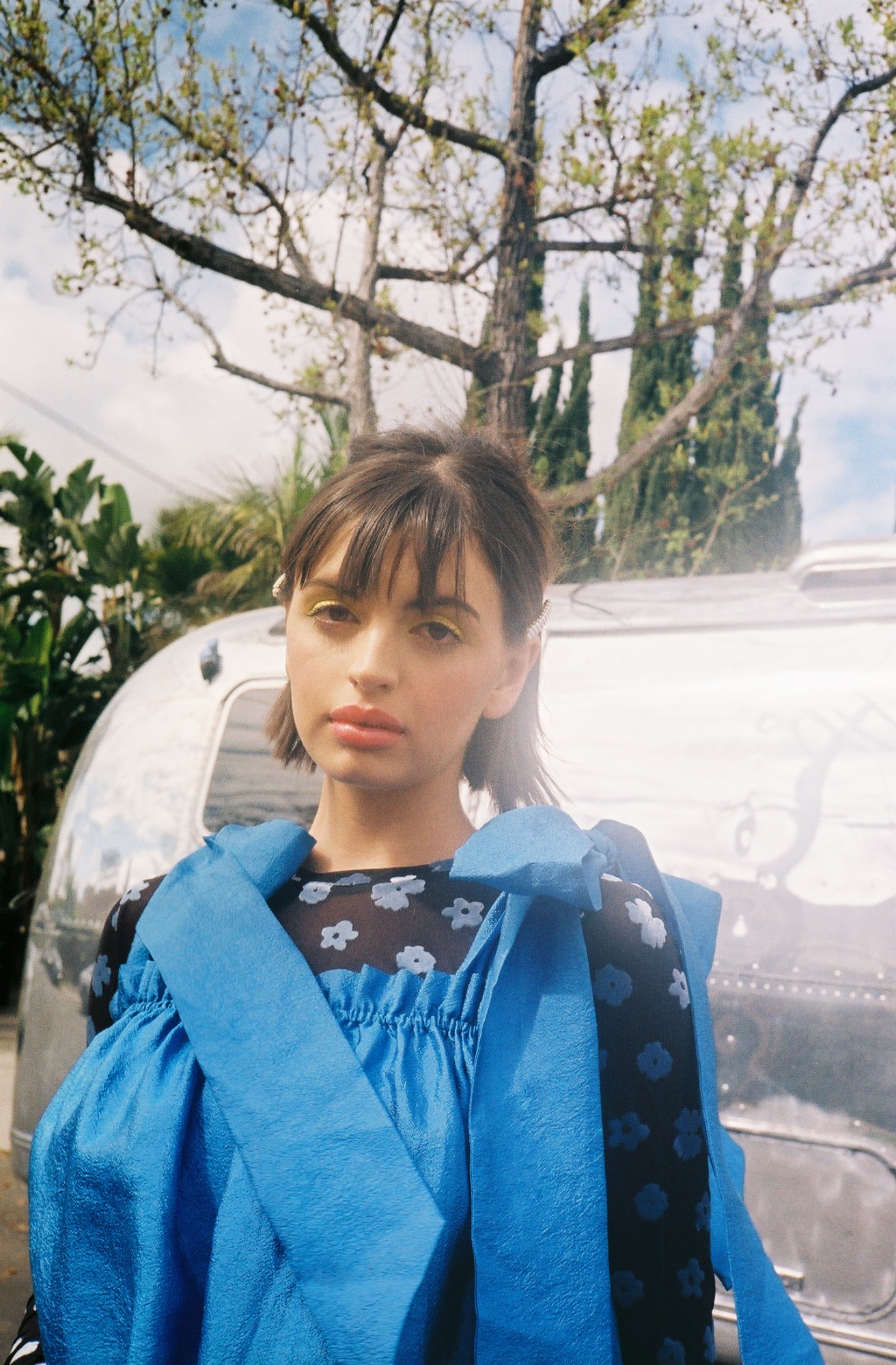
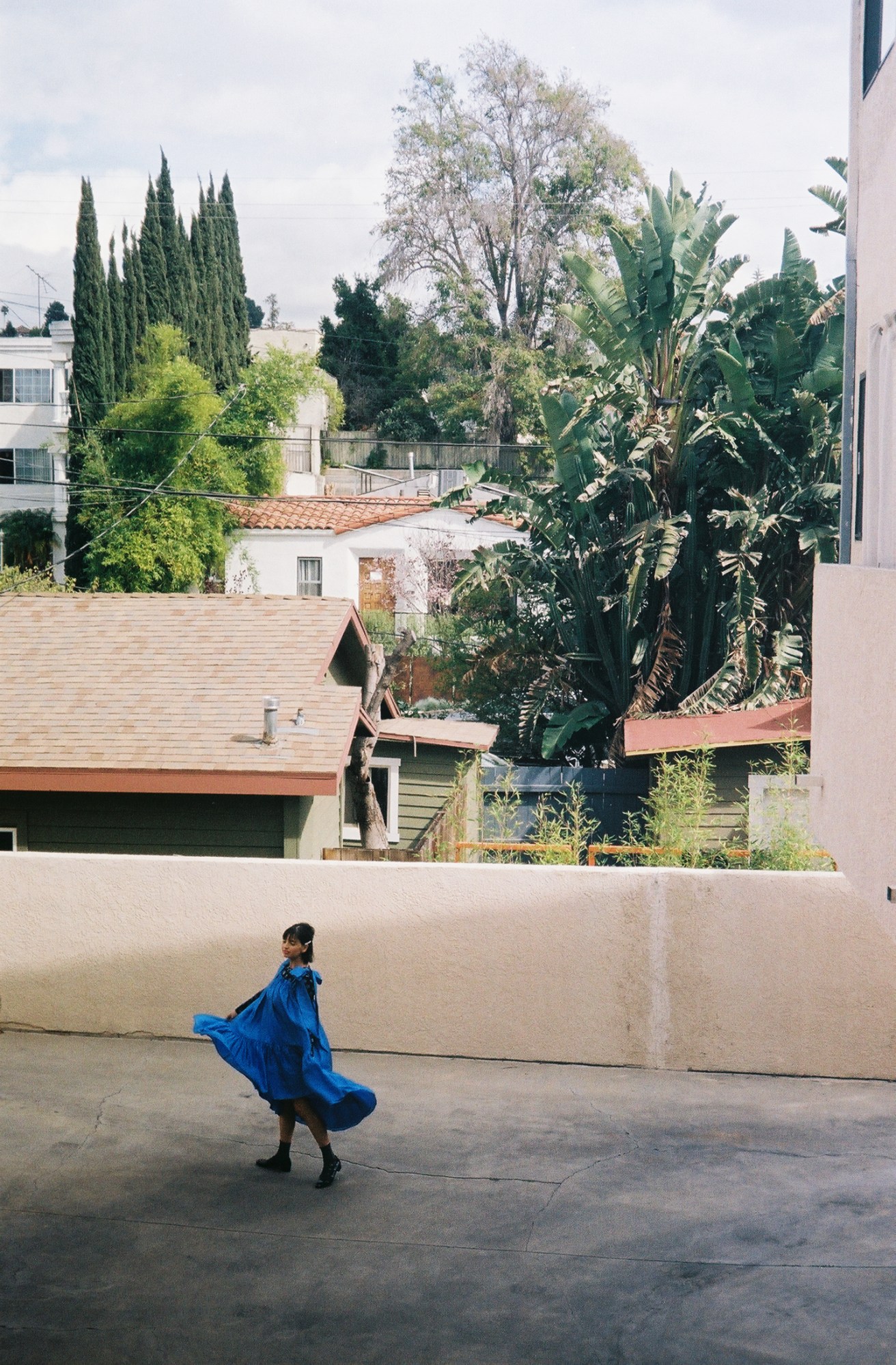
Credits
Photography Miriam Marlene Waldner
Photo assistant Emerson Snowe
Styling Trudy Nelson
Hair Michael Sebastian
Make-up Sheila Harris
